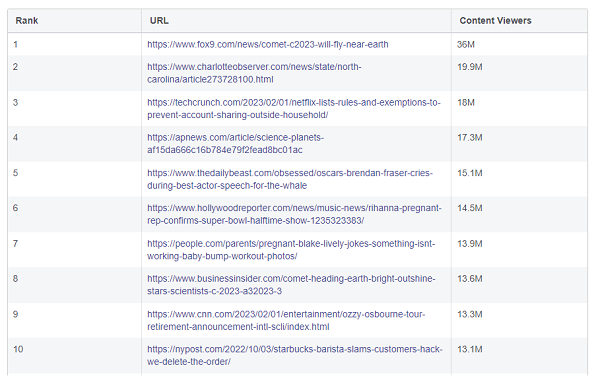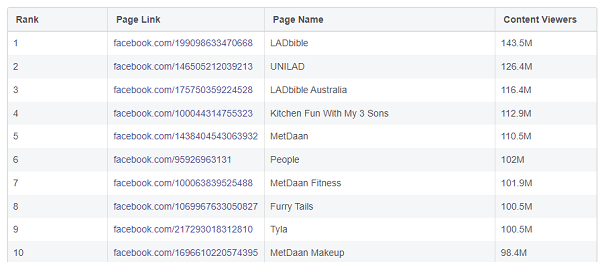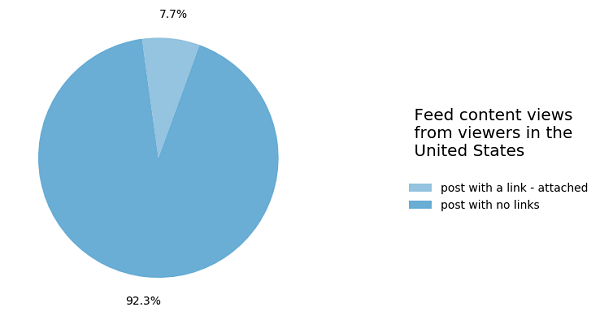Meta has published its latest Widely Viewed Content Report, which provides insight into the most viewed content in the app, and the latest trends of note in Facebook feed consumption.
Meta originally created the Widely Viewed Content Report to counter the suggestion that Facebook is dominated by controversial and divisive content, amid reports that right-wing political posts were gaining more traction than anything else in the app.
And in combination with Meta’s efforts to reduce political argument in-stream, there does seem to have been a clear reduction in the prevalence of political-type posts, with the more recent Widely Viewed Content updates showing a lot of light-hearted, humorous posts, as opposed to argumentative updates.
So what’s gaining traction on Facebook in 2023?

Mostly, Facebook users are interested in a comet that’s set to be visible in the night sky sometime next year, which accounts for three of the top ten most viewed referral links from the app. There are also celebrity stories, a report on Netflix cracking down on password sharing – it’s all pretty innocuous stuff, especially in comparison to the divisive political debates that once seemingly dominated Facebook feeds.
In terms of the most viewed Facebook Pages, it’s also dominated by viral trend posters, recipes and pet clips.

So yes, Facebook is pretty much as you would expect – cute cat videos and celebrity trends, with political content virtually non-present among its most-viewed lists.
Which, as noted, is not unexpected, given that Meta has sought to reduce the presence of political posts, based on feedback from users.
Back in January 2021, in the wake of the Capitol Riots, Meta CEO Mark Zuckerberg explained that:
“One of the top pieces of feedback we’re hearing from our community right now is that people don’t want politics and fighting to take over their experience on our services.”
That sparked Meta’s team to re-align its algorithms in order to reduce the reach of political posts, which has since seen a reduction in such exposure on Facebook. And while this push also showed that some users do still want to see political content in-stream, Meta has clearly taken a step back from this element, by shifting its algorithmic incentives away from political debate.
Instead, Meta’s now emphasizing Reels, and consumption of short-form video in the feed, which has seen overall Facebook usage on the rise in recent months. Yet, the secondary impact of that is that users are posting fewer original updates, in favor of consuming video in feed instead – so Facebook is really becoming more of an entertainment provider in this context, as opposed to a social network, where people look to post their own personal updates.
That’s also reflected in this stat, which is particularly worthy of note for social media managers:
“92.3% of the views in the US during Q1 2023 did not include a link to a source outside of Facebook.”

That figure is on the rise – in the first Widely Viewed Content report, published for Q3 2021, 86.5% of the posts viewed did not include a link outside the app.
The steady rise in views of posts that don’t include links likely correlates with the increasing consumption of video content, and users engaging in-stream, but it’s likely also led to a significant reduction in referral traffic from the app.
So if you wanted to know why your Facebook traffic is down, this could well be it.
These are some interesting notes on Facebook consumption behaviors, and how the feed is shifting in line with new usage trends. And while the referral traffic numbers are taking a hit as a result, it also seems like a positive that divisive political debate is reducing in presence, which could see less angst and debate overall.
Or more of that discussion is shifting to private groups and DMs. Whether that would be a better outcome, I don’t know, but it’s interesting to note the latest Facebook shifts nonetheless.
You can read Meta’s latest Widely Viewed Content Report here.



